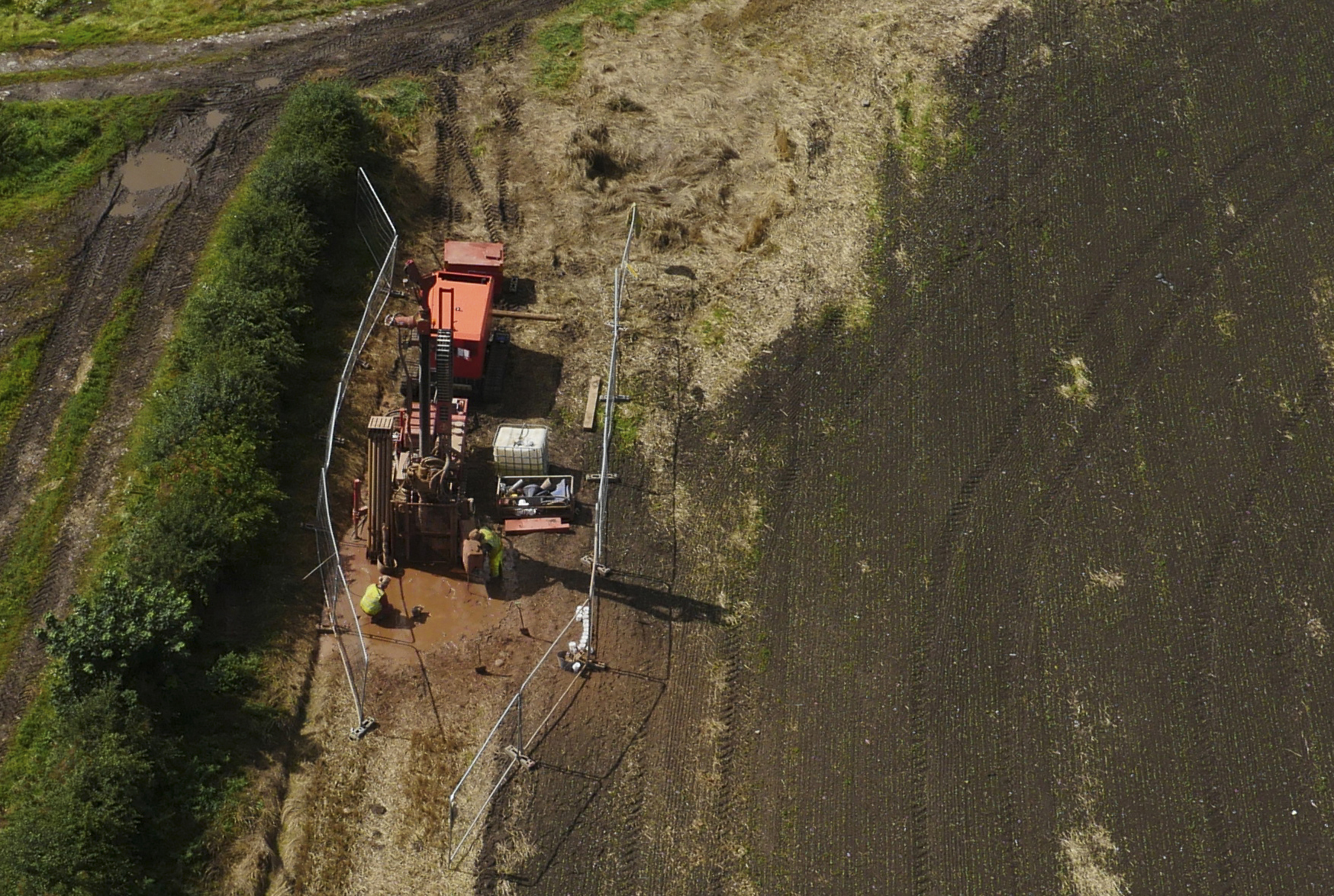Along with partners from the former Public Health England (now the UK Health Security Agency) and the universities of Birmingham, Bristol, Manchester, Royal Holloway and York, BGS carried out a programme of science-based environmental monitoring in Fylde, Lancashire, an area where hydraulic fracturing for shale-gas exploration was undertaken in 2018 and 2019 by Cuadrilla at its Preston New Road site. Our environmental investigations took place from 2015; most ended in 2020, but limited monitoring of seismicity and groundwater continued.
The BGS-led environmental monitoring programme was independent of both the industry and regulators.
The study represents the first independent, integrated monitoring programme to characterise the environmental baseline in an area subjected to close scrutiny in the development of a UK shale-gas industry.

Drilling shallow boreholes in Fylde, Lancashire, for monitoring groundwater quality close to sites proposed for exploration of unconventional hydrocarbons. BGS © UKRI.
The investigation built on pre-existing national monitoring programmes for groundwater and seismicity.
The need for an effective baseline and independent monitoring
Starting in February 2015, our baseline environmental monitoring programme acquired a robust set of water, air, soil and ground baseline measurements. This provided a vastly improved knowledge base for an area recognised as prospective for shale gas but also of significant public concern. Should any future gas exploration or development take place in Lancashire (or elsewhere in the UK) this data would provide us with a strong evidence base against which to assess any changes in future environmental conditions.
Such baseline characterisation was not undertaken during the early stages of unconventional oil and gas development in parts of North America, where recent scientific study has highlighted that problems with lack of regulation and borehole integrity have led to environmental pollution. The monitoring in Fylde was valuable as it provided environmental baseline data and its temporal variation, regardless of whether or not any future shale gas exploration takes place.
The monitoring we undertook was independent of industry and the regulators, to ensure that scientifically robust outputs were evidence based and impartial.
Information collected from the monitoring programme is summarised on the BGS website and is also supporting peer-reviewed science.

